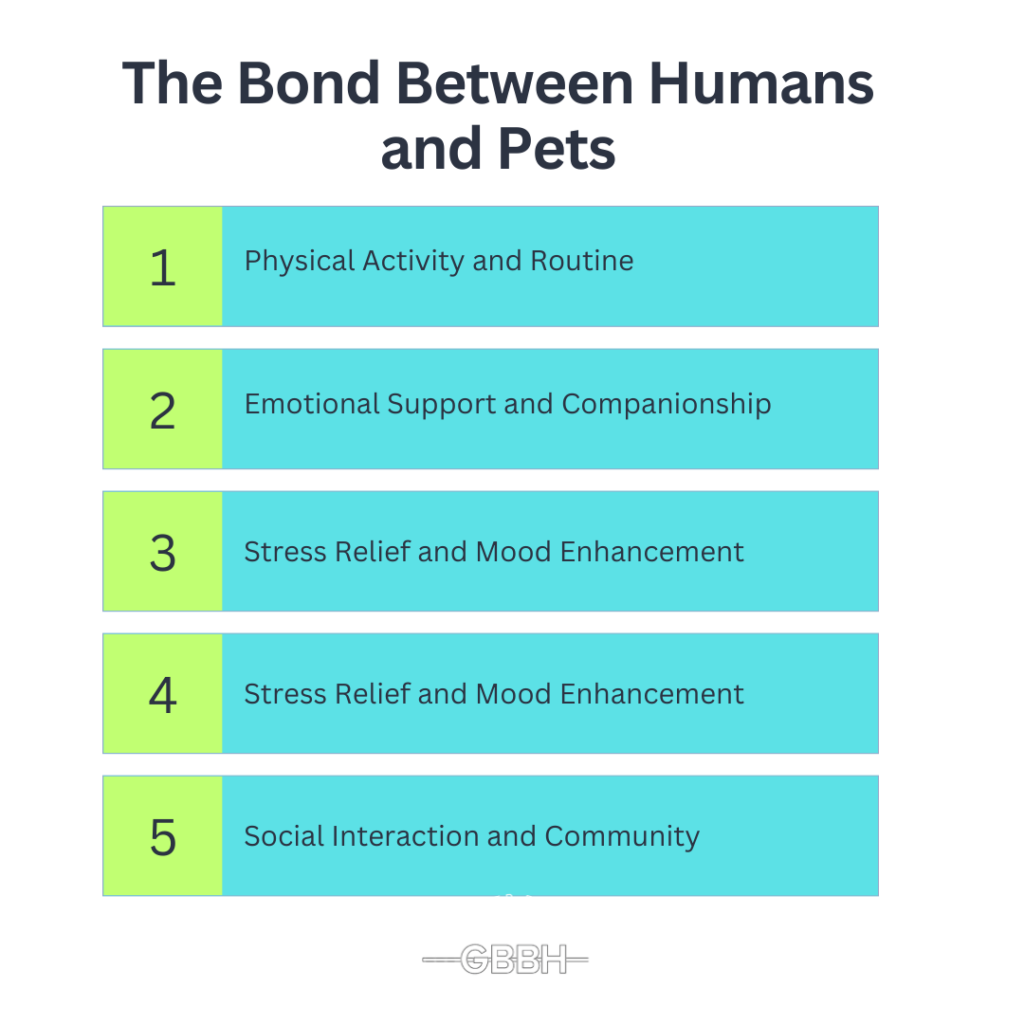Depression can feel like an unrelenting shadow, casting doubt and despair on everyday life. While traditional therapies and medications are crucial for managing symptoms, an often overlooked yet powerful source of comfort and support comes from our furry companions. Pets can play an invaluable role in alleviating depression, providing companionship, emotional support, and an engaging routine. At Greater Boston Behavioral Health, we recognize the multifaceted approaches to mental wellness, including the therapeutic benefits that pets can bring.
Emotional Support and Companionship
For those grappling with depression, feelings of loneliness and isolation can be overwhelming. Pets offer a unique form of companionship that transcends words. A wagging tail, a soft purr, or the simple act of snuggling can provide profound emotional relief. The unconditional love that pets offer fosters a sense of belonging and connection, reminding individuals that they are not alone in their struggles.
Imagine coming home to a dog eagerly waiting at the door, their excitement infectious and pure. This daily greeting can instill a sense of joy and routine, serving as a reminder that there is something to look forward to each day. Cats, with their calming presence, can curl up beside you, providing comfort that soothes the mind and spirit.
Encouragement for Physical Activity
Engaging in physical activity is essential for mental health, but depression can often sap motivation and energy. Pets can serve as effective motivators, encouraging their owners to move and engage with the world. A daily walk with a dog not only benefits the pet but also promotes exercise and fresh air for the owner. The rhythmic motion of walking, combined with the responsibility of caring for a pet, can create a positive feedback loop, enhancing mood and overall well-being.
Consider a person who feels lethargic and disinterested in daily activities. The prospect of walking a dog may provide just the nudge they need to step outside. Each walk becomes an opportunity for physical activity, exposure to nature, and even moments of mindfulness as they focus on their surroundings.
Routine and Structure
For individuals dealing with depression, establishing a routine can be particularly challenging. However, pets necessitate a level of responsibility and structure that can be incredibly beneficial. Feeding, grooming, and exercising a pet create a daily schedule that helps individuals regain a sense of purpose.
The act of caring for a pet—whether it’s ensuring they have fresh water, taking them for a walk, or engaging in play—instills a sense of accomplishment. Completing these daily tasks can reinforce positive behavior and enhance self-esteem, which is often diminished in those experiencing depression.
Emotional Connection and Non-Verbal Communication
Pets have an extraordinary ability to tune into human emotions, often sensing when their owners are feeling low. This non-verbal communication fosters a bond that transcends traditional interactions. Unlike human relationships, which can be fraught with complexity, the bond between a person and their pet is simple and genuine.
During therapy sessions that incorporate pets, such as cognitive-behavioral therapy (CBT) or dialectical behavior therapy (DBT), individuals may find themselves feeling more at ease. The presence of a pet can create a comforting environment that encourages open dialogue and emotional expression, facilitating deeper healing.
Reducing Stress and Anxiety
Interactions with pets have been shown to lower cortisol levels, the hormone primarily associated with stress. The simple act of petting a dog or cat can elicit relaxation and promote the release of endorphins, which enhance mood. Imagine spending a few quiet moments with a pet after a long, stressful day—those moments can lead to a tangible reduction in anxiety.
Studies have found that individuals who spend time with pets report feeling calmer and more centered. The rhythmic sound of a cat’s purr or a dog’s soft breathing can serve as a natural antidote to anxiety, creating a safe space for individuals to decompress and relax.
Social Connections
Pets can also facilitate social interactions, which are vital for emotional health. Walking a dog often leads to conversations with fellow dog owners, and community pet events can provide opportunities to meet like-minded individuals. These social connections can be especially beneficial for those with depression, as building a support network is a critical component of recovery.
In addition, pet therapy programs frequently involve group settings, allowing individuals to connect with others who understand their struggles. These shared experiences foster a sense of community and support, further enhancing the recovery journey.
Conclusion
At Greater Boston Behavioral Health, we emphasize a holistic approach to mental health treatment. Incorporating pets into recovery plans can significantly enhance emotional well-being and provide essential support on the journey toward healing. If you or someone you know is struggling with depression, our mental health treatment center in Massachusetts offers various mental health programs tailored to individual needs, including therapy options like cognitive-behavioral therapy and dialectical behavior therapy.
FAQ on How Animals Mend Depression
How can pets help with depression?
Pets provide companionship, emotional support, and a sense of purpose. Their unconditional love and presence can reduce feelings of loneliness and isolation, fostering a connection that enhances overall well-being.
What types of pets are best for alleviating depression?
While dogs and cats are the most common pets associated with emotional support, other animals like rabbits, guinea pigs, and even birds can also offer companionship and comfort. The best pet for alleviating depression depends on individual preferences and lifestyles.
Can having a pet really improve mental health?
Yes, numerous studies have shown that pet ownership can lead to lower levels of stress, anxiety, and depression. Interacting with pets can trigger the release of feel-good hormones, promoting a sense of happiness and calm.
How do pets encourage physical activity?
Pets, especially dogs, require regular exercise. Walking, playing, or engaging in activities with pets encourages owners to be more active, which can boost mood and overall mental health.
What role do pets play in therapy?
Pets are often incorporated into therapeutic settings to create a calming environment. They can help facilitate emotional expression, provide comfort during difficult discussions, and reduce anxiety in therapy sessions.
How do I know if I’m ready to get a pet for mental health support?
Consider your lifestyle, time commitment, and ability to care for a pet. It’s important to be ready for the responsibility that comes with pet ownership, as they require care and attention. If you’re unsure, consulting a mental health professional may help you assess your readiness.
Can I benefit from pet therapy if I don’t own a pet?
Yes! Many mental health treatment centers offer pet therapy programs that allow individuals to interact with therapy animals without needing to own a pet. These sessions can provide similar emotional benefits.


